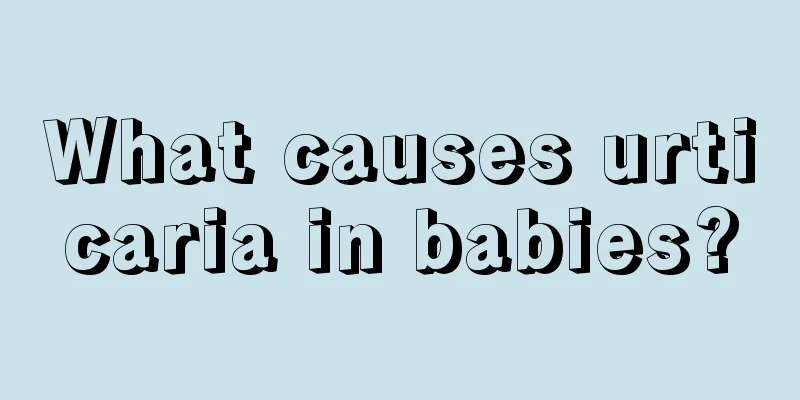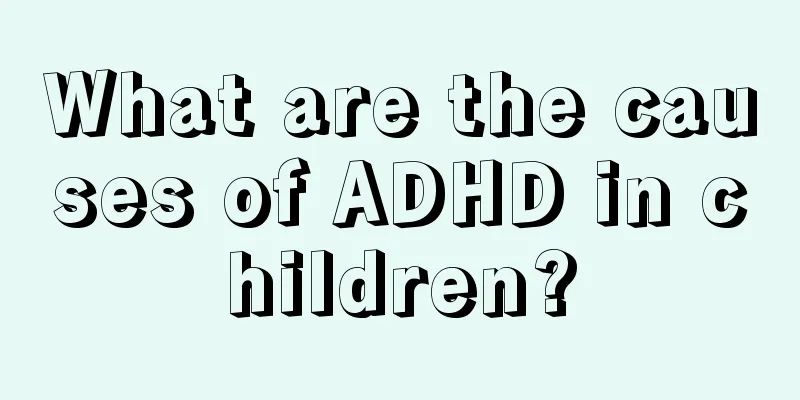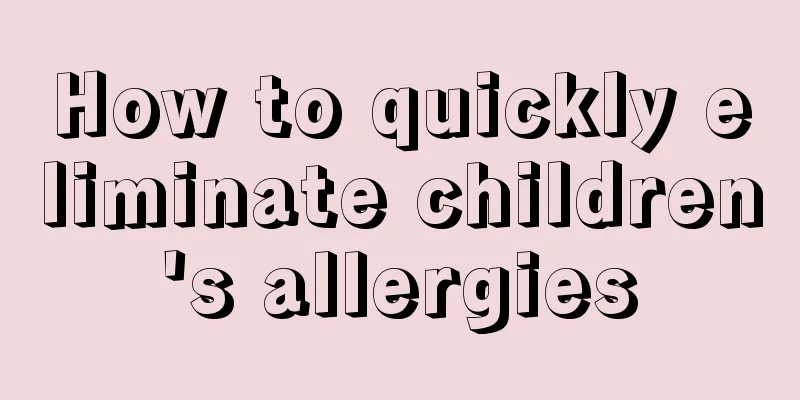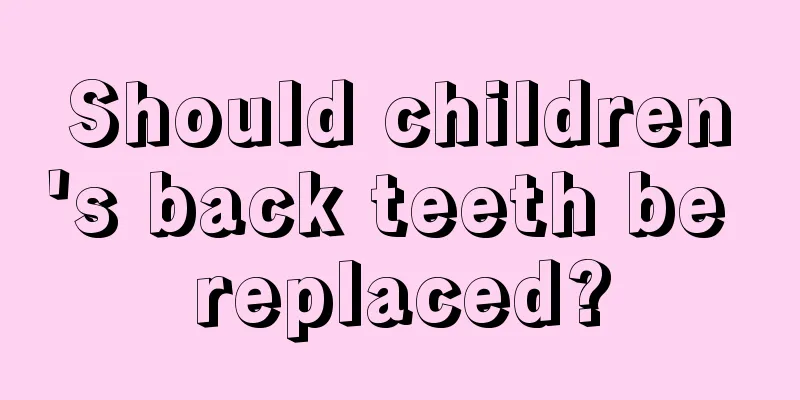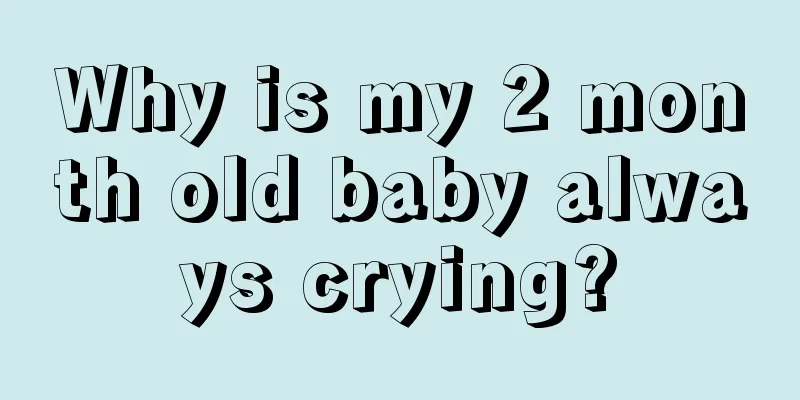One year old baby keeps drooling
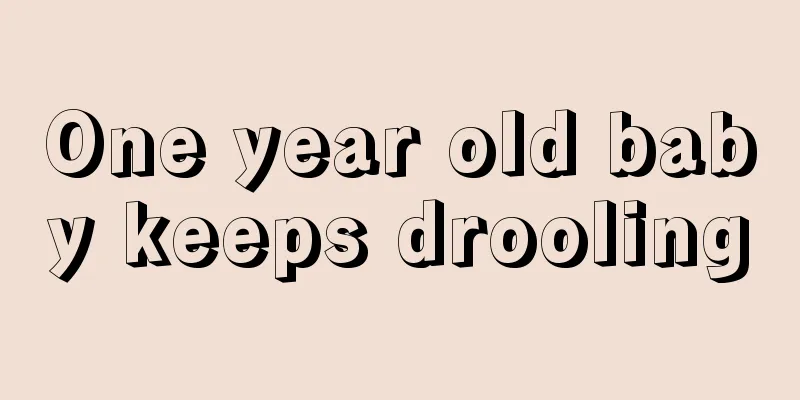
|
If a one-year-old baby is drooling all the time, parents should pay attention to it. At this time, the baby's drooling may be due to the eruption of deciduous teeth. The baby will feel uncomfortable due to teething, which may cause drooling. Generally speaking, this is a normal phenomenon. As a parent, don’t worry too much. Pay attention to your baby’s oral hygiene in daily life and wipe the baby’s drool in time. One year old baby keeps drooling Is it normal for babies to drool? In many cases, drooling is a normal physiological phenomenon for babies, and it will naturally get better as they grow and develop fully. Babies do not drool when they are just born because their salivary glands are underdeveloped. In the first week after birth, the amount of saliva secreted per day is 50 to 80 ml (1000 to 1500 ml for adults), which is just enough to moisten the oral mucosa, so you cannot see the baby drooling at this time. Generally, the amount of saliva secretion will increase significantly when the baby is 3 months old. Babies start to add complementary foods after 4 to 6 months. Food has a strong stimulation on the nerves and salivary glands, which will enhance the secretion function of the salivary glands and cause a significant increase in saliva. However, the baby will not drool at this time. Generally, babies drool when their deciduous teeth erupt. The eruption of deciduous teeth produces mechanical stimulation to the gingival sensory nerves, causing the salivary glands to secrete more saliva. At this time, the child's oral cavity is small and shallow, and the swallowing reflex function is not yet perfect. They cannot use swallowing movements to regulate saliva and cannot swallow excess saliva in time, causing saliva to accumulate in the mouth and overflow. When babies are happy or laughing, their saliva will flow out of their mouths. In addition, many babies like to put their fingers, rubber nipples, etc. into their mouths and suck them, which also stimulates the secretion of the salivary glands and increases saliva. When the baby's deciduous teeth erupt, the small teeth push outward from the gums, causing mild discomfort to the gum tissue and stimulating the nerves on the gums, which can also lead to an increase in the reflex secretion of the salivary glands. As the deciduous teeth erupt, the baby's alveolar sockets gradually form, the palate slowly rises, and the bottom of the mouth gradually deepens to accommodate more saliva; in addition, the swallowing movement is gradually trained to mature, and the baby can use swallowing to regulate the amount of saliva in the mouth, and can swallow the saliva in time, so the drooling stops naturally. Reasons why babies drool From the above we can understand that babies usually drool when their deciduous teeth erupt. This is a normal phenomenon. However, in addition to normal physiological growth that can cause babies to drool, there are some non-physiological reasons that can also cause babies to drool. Let's learn about it below. 1. Breastfeeding for too long. Extend breastfeeding beyond the age of 1, and even add complementary foods after weaning. This practice is not conducive to the normal development of children's digestive system and often causes drooling accompanied by indigestion. 2. Some parents and relatives often pinch their children's cheeks out of love. This practice can easily cause mechanical damage to the child's parotid gland, resulting in the secretion of saliva much greater than that of normal children, thus causing drooling. 3. Oral diseases such as bacterial stomatitis, stomatitis caused by herpes virus, mucosal congestion or ulceration, or ulcers on the tip of the tongue, cheeks, and lips will lead to excessive secretion of salivary glands, resulting in drooling. 4. Diseases of the nervous system, such as damage to the centers, nerve conduction pathways, and nerves related to salivation, can all cause drooling. 5. When suffering from certain congenital diseases, drooling is common, and it is also accompanied by symptoms such as mental retardation, slow reaction, dull eyes, erratic crying, and tongue sticking out of the mouth. |
<<: Why do babies like to spit?
>>: What is the cause of baby squeezing eyes?
Recommend
Shoulder twitching in children
When parents are taking care of their children, t...
What should I do if my baby's eyes are tearing and have eye mucus?
Babies are the apple of their parents' eyes. ...
What is the cause of the child's lower eyelid swelling?
Parents certainly hope that their children can gr...
What's wrong with the child's poop?
The health of children is very important, especia...
What is the reason for the red pimples on the child's body?
Once a child develops a skin disease, it always g...
How to prevent intestinal diseases in children?
Gastroenteritis is mostly related to bacteria. Fo...
What should I do if my child has atrial septal defect?
Many people may not know what atrial septal defec...
Can red birthmarks go away on their own? Pay attention to treatment
Red birthmarks are present at birth and are a com...
What to do if your baby has a cold and is sleepy
We all know that babies have very poor immunity, ...
What to do if red bumps appear on the seven-month-old baby
Babies are young and have delicate skin. There ar...
How to quickly treat children’s oral ulcers?
Oral ulcers are a common oral disease and many fa...
Common psychological problems in young children
Nowadays, the pressure of life is getting greater...
What to do if your child doesn't like to wear shoes
Shoes are an important protector of children'...
What foods can students eat to nourish their brains?
From birth to adulthood and then to old age, a ch...
What are the porridges for children that strengthen the spleen and stomach and aid digestion?
Children's spleen and stomach functions are r...

